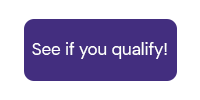How to Get a Mortgage When Self-Employed
The mortgage process for self-employed borrowers is like that of a regular salaried borrower. You will complete a loan application, provide documentation, and then your loan will go into underwriting for a final approval decision. The only main difference is that self-employed borrowers may be required to provide additional documentation to showcase their income as it may be more volatile or irregular than a traditional salaried borrower.
Self-Employed Mortgage Requirements: How to Qualify
The mortgage requirements for self-employed borrowers may vary depending on your scope of work, credit profile, and loan scenario. Typically, the following outlines some basic ways to qualify for a loan when self-employed.
What do Lenders Look for?
- Income
- You must have proof of stable income with no gaps or monthly volatility.
- History of employment
- Typically, you must be self-employed for at least 2 years to qualify for a self-employed mortgage program.
- Credit history
- Having a good credit score may make it easier to qualify for a program to prove you have responsibly handled past debt.
- Debt-to-income ratio
- Typically, self-employed borrowers must have a lower debt-to-income ratio to ensure they can afford the monthly mortgage payments.
What Documents are Required?
The documentation requested may vary depending on the type of business you own. Common documents include:
- Two years of federal income tax returns (business and personal)
- Profit and loss statement (if you are a small business owner)
- Copy of the business license
- Letter from your CPA stating you have been in the business for at least 2 years
Tips for Putting your Best Application Forward as a Self-Employed Borrower
Before applying for a self-employed mortgage program, you may want to focus on the following to increase your chances of getting approved for the mortgage.
- Lower your debt-to-income ratio
If your ratio is on the higher end, you may want to focus on paying down some debts before applying for a mortgage. Borrowers with higher debt-to-income ratios are deemed riskier, which may lead to a higher interest rate.
- Boost your credit score
Although improving your credit score is not a quick fix, you may want to check up on your score before applying. If it’s not where it needs to be, focus on making timely monthly payments and avoid applying for new credit. Typically, higher credit scores may allow for more favorable loan terms.
- Save up for a larger down payment
Some self-employed mortgage programs may require a down payment of about 20%. Click here to learn more about tips on saving for a down payment!
Bank Statement Loans for Self-Employed Borrowers: Alternative Documentation Programs
If you cannot qualify for the loan program based on the documentation listed above, you may benefit from a bank statement loan. Like freelancers or independent contractors, some borrowers may have more irregular income than others, making it difficult for them to qualify for the loan based on federal income tax returns and profit and loss statements. GuardHill offers a bank statement loan program that may make it easier for self-employed borrowers to purchase or refinance a primary home, second home, or investment property.
- Program highlights:
- Borrower may qualify based on personal or business bank statements
- No tax returns required!
- Borrower may qualify based on multiple streams of income in addition to bank statements
- W-2 income
- Rental income
- Retirement income
- Social security income
- Eligible for loans up to $3 Million
- Minimum down payment of 20%
- Gift funds are allowed
- Borrower may qualify based on personal or business bank statements
Why Choose GuardHill?
GuardHill has over 31 years of mortgage financing experience and specializes in providing standard and out-of-the-box financing solutions for our customers. GuardHill works with numerous investors and lenders and offers various loan programs to provide borrowers with the best financing solutions possible.
Contact us today to get started!

